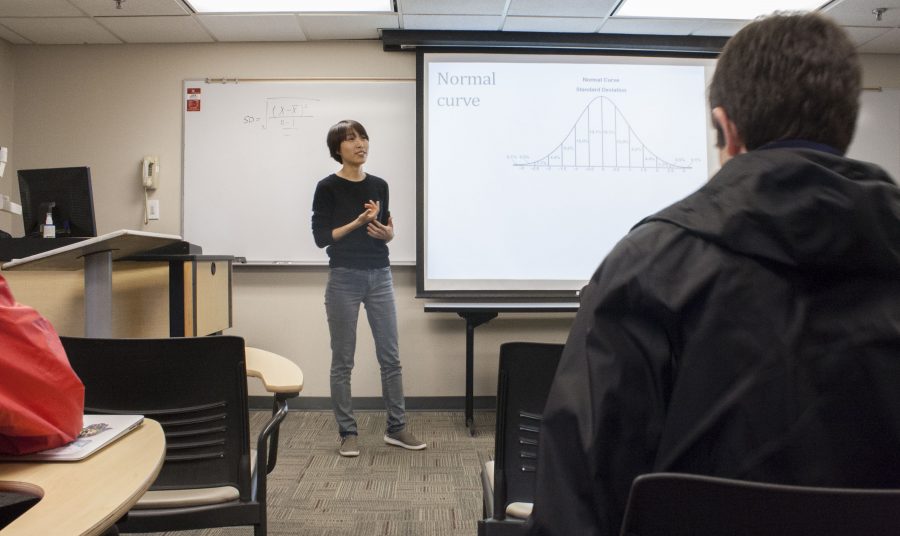Every day on campus you will meet different types of people from different places. You might even get the chance to learn from one of them such as Maria Zhang, a teaching assistant who moved from here China.
What made you decide to come to the United States from China and then to The University of Alabama?
I took my masters at Oklahoma State, and I applied to eight or nine colleges for the Ph.D study. Most of the schools who gave me admissions were in the South. Two professors from this program highly recommend this program, and I trust them. This program is very famous for the public relations program and although that is not my major, I think it means something. The director of the Ph.D studies gave me a phone interview and we had a very pleasant talk. They gave me family and not every school gave me that.
How is living in the states different from Shenyang, China?
There is a lot of difference. My biggest concern is that it is hard to find the food I like. That makes me miss my home so much, other than that, being away from my family and friends. Sometimes I suffer from homesickness, but that does not happen very often. The culture is very different. Everyone is very individualistic in this country. You are supposed to make every decision on your own. Of course you can seek advice from the people around you, but ultimately it is you who has control of your life. Its sounds like a big concept. But it’s just your everyday life. Things will be very different when I have a job and family of my own. For now I am just a student so everything is not true life.
What do you plan to do after getting your Ph.D.?
I hope to get some teaching experience in the States first before I go back to China. Eventually I will go back because that is where my family is. I am a single child, and my parents will count on me when they grow old. We do not have very high quality nursing homes in China. You become more adaptive to a different culture. It’s very good for doing academic research. It provides you a different understanding of your world. I will try my best to get a job here first and experience that I can bring back to my country.
How did you choose your original career and how did that lead you to your degree now?
From the very beginning I didn’t chose anything. My parents did. They choose everything in China. The education here is really better than in China. You can choose a combination of classes and make that decision on your own. But in China it’s different because everyone is taking the same courses and the same time. You’re always with the same people and that’s not good to calculate your independence. When I went to high school I had totally no idea what I wanted to do in college. But I like language and I to communicate. I like literature and those kinds of things. I had an undergraduate major of teaching Chinese of sacred knowledge. Then I got a job in the media at a news website. That’s how I switched to the communication area. I worked as a reporter and editor for two or three years. I came across a lot of questions like how to attract your audience. I would say I am a curious person and I wanted to the answers. The best place to get those research skills are here in the United States. A good opportunity came and I had to grasp it.
What is teaching like for you here and what are some challenging or rewards?
The biggest hurdle is my accent, but I think it is becoming better and better. Apart from the accent, life experience. The culture is still a hurdle at this moment. It’s difficult to make class more relatable to the student’s life. Background knowledge is important. A new idea does not come from anywhere. Everyone has their own perspective and they got it from those past experiences. I do not share that same experience and that can be a problem. I do think it’s absolute. If you look at it from the other side, it can also be an advantage because you are bringing something new to the classroom. That is useful when you are looking to inspire your students.









